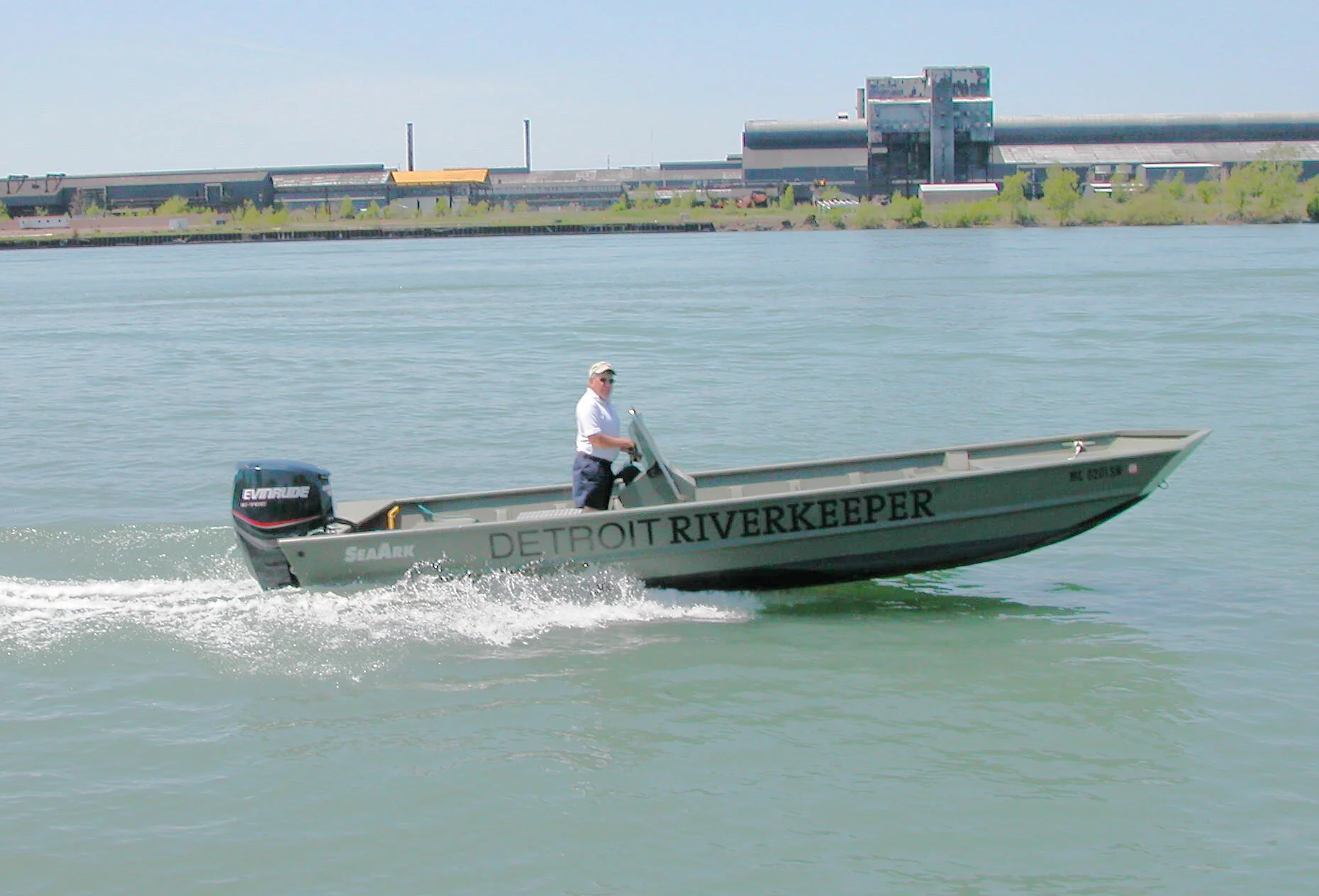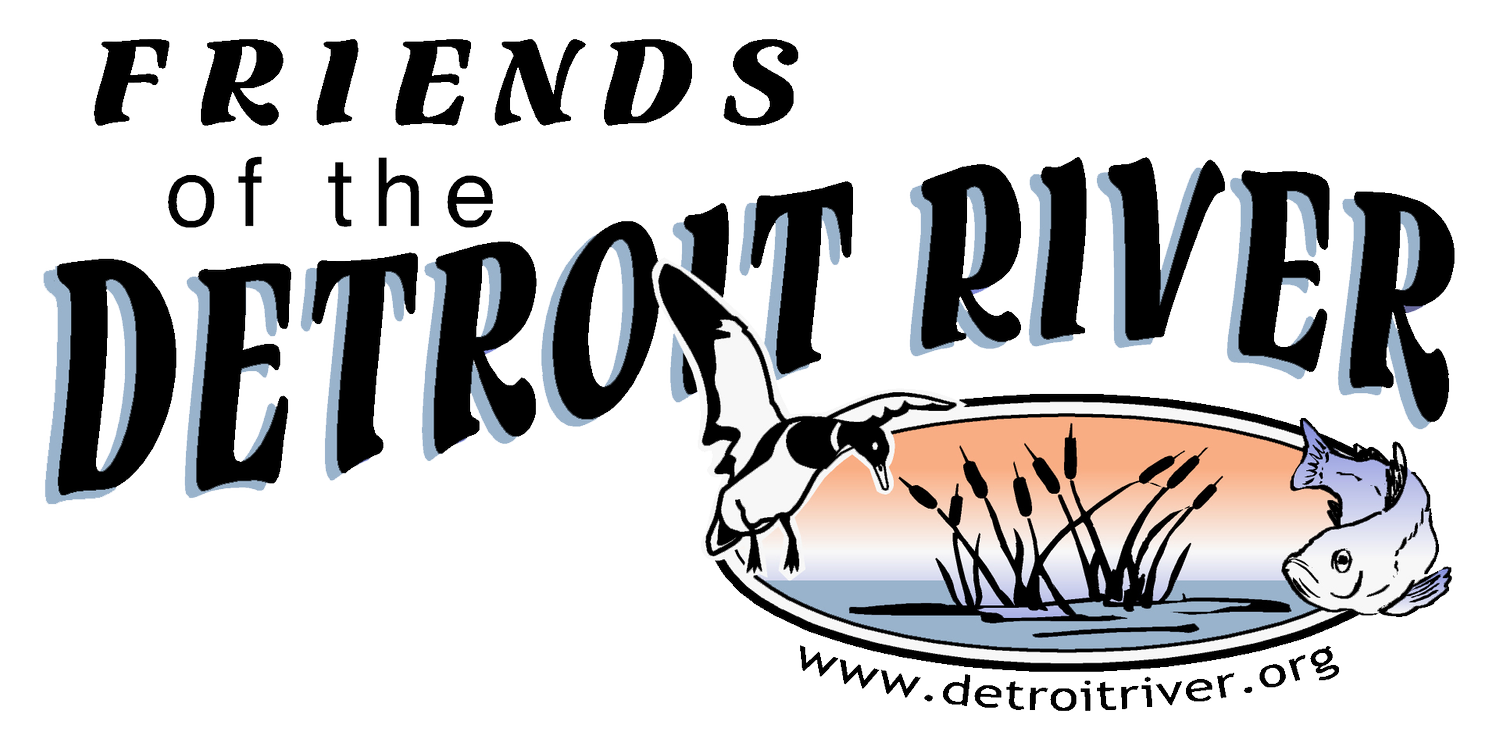
Waterkeeper Alliance and the Detroit Riverkeeper Program
Detroit Riverkeeper Mission Statement
The Detroit Riverkeeper is a nonprofit citizen action group organized to protect, preserve and restore the ecological integrity of the Detroit River Watershed for current users and future generations through advocacy and citizen action. The Detroit Riverkeeper uses education, communication, partnership building, monitoring, regulatory oversight and research to accomplish its commitment as a protector of the Detroit River Watershed and an emphasis in building a stronger sense of community stewardship for its waters through these efforts.
Background
The Waterkeeper concept started in 1966 on the Hudson River, when a group of commercial and recreational fisherman mobilized to fight the effects of pollution that had contaminated the river's fish stocks. They called themselves the Hudson River Fisherman's Association. More specifically, the State of New York placed a ban on the sale of striped bass, which were found to contain high levels of PCBs, and thus threatened a hundred-year-old way of life.
Their goal was to use any legal means necessary to bring to the attention of the public those entities that were contributing to the pollution of the Hudson River. They constructed a boat to patrol the river, to uncover problems and established a program to deal with water pollution issues. It was the idea of Robert Boyle, a prominent outdoor writer and President of the Fisherman's Association, to establish a Riverkeeper on the Hudson to work in the public's interest as someone who would act as the "eyes and ears" for the public on the river.
By 1983, the Riverkeeper concept had spread to surrounding bodies of water and across North America with a number of established Riverkeeper programs. In 1984, Robert Kennedy Jr. was retained to act as chief legal counsel for the organization and while working with John Cronin, the Hudson River's first Riverkeeper, won a number of battles against major polluters along the shores of the Hudson.
In 1992, the existing Waterkeepers founded the National Alliance of Rivers, Sound and Bay Waterkeepers, which was renamed the Waterkeeper Alliance in 1999. The Alliance is based out of New York and oversees the development of new Waterkeeper associations and works on national issues that individual Waterkeeper programs hold in common. There are currently over 350 individual Waterkeeper organizations in the United States and around the world.
In November of 2003, FDR received its Conditional Licensing Agreement from the Waterkeeper Alliance to form the Detroit Riverkeeper Program and fulfilled all of the requirements to become a permanent Waterkeeper Alliance member.
Who is the Detroit Riverkeeper?
Robert Burns, a lifelong resident living along the Detroit River, was appointed as the first Detroit Riverkeeper in 2003. Mr. Burns, a graduate of Grosse Ile High School and Kalamazoo College, grew up on the river hunting, fishing, camping and exploring the many islands, marshlands and man-made dikes that make up the lower Detroit River. As an adult, he undertook a career in marine construction and engineering and has been involved in many projects up and down the river, as well as other waters of the Great Lakes.
In his many years on the water, he has developed a good understanding and appreciation for not only the natural diversity and beauty found along the river but also an understanding of many of the area's problems that have led to its degradation. "I accepted this position because I felt that I could take my experience and commitment and put it to work to help address some of the river’s problems and, at the same time, work to support the types of actions that would promote sustainable economic growth, promote stewardship of the river in a way that made environmental and economic sense."
There is a misconception that the needs of industry, community and the environment are incompatible. Industry has been an integral factor in the development and livelihood of this region for well over a hundred and fifty years. In one way or another, most residents of the Detroit River Watershed owe their livelihood to one of these major concerns and our local economy is dependent on their continued success. We have seen a change in the philosophy of how a number of these major corporations view environmental concerns.
Over the last two decades the Riverkeeper program has seen many positive changes being made to reverse decades of abuse. Many of the more responsible companies and communities are making great strides in reducing their pollution emissions and are directly involved in environmentally and economically sustainable reclamation projects. Old industrial sites and brownfield areas along the river are being redeveloped into parks, greenways and golf courses, allowing more public access. New residential and commercial developments have also taken advantage of these sites, providing upscale housing and new jobs, and local companies are investing in ways to produce their products with more efficiency and fewer emissions.
With the resulting cleaner air and water conditions that have evolved over the last four decades, due to stricter pollution regulations, recreational activities have also flourished. Boating, hunting, sport fishing, as well as other recreational activities, contribute millions of dollars to the local economy each year and are growing in popularity. Property values in these riverfront communities are increasing because of this change. The job of Riverkeeper is to support those who are working to make the Detroit River a better place to live, protect and improve our natural resources and to bring those to task who continue to harm the river and its resources.
The Detroit Riverkeeper program wishes to thank the support that it receives from the Friends of the Detroit River, its board, its committees, members and the public. Funds used to support the Riverkeeper and Riverkeeper Committee come primarily from grants, FDR support, and foundation funding. The day to day operations of the Riverkeeper boat are supported primarily by donations from members and supporters at the annual Detroit Riverkeeper fundraising dinner.




